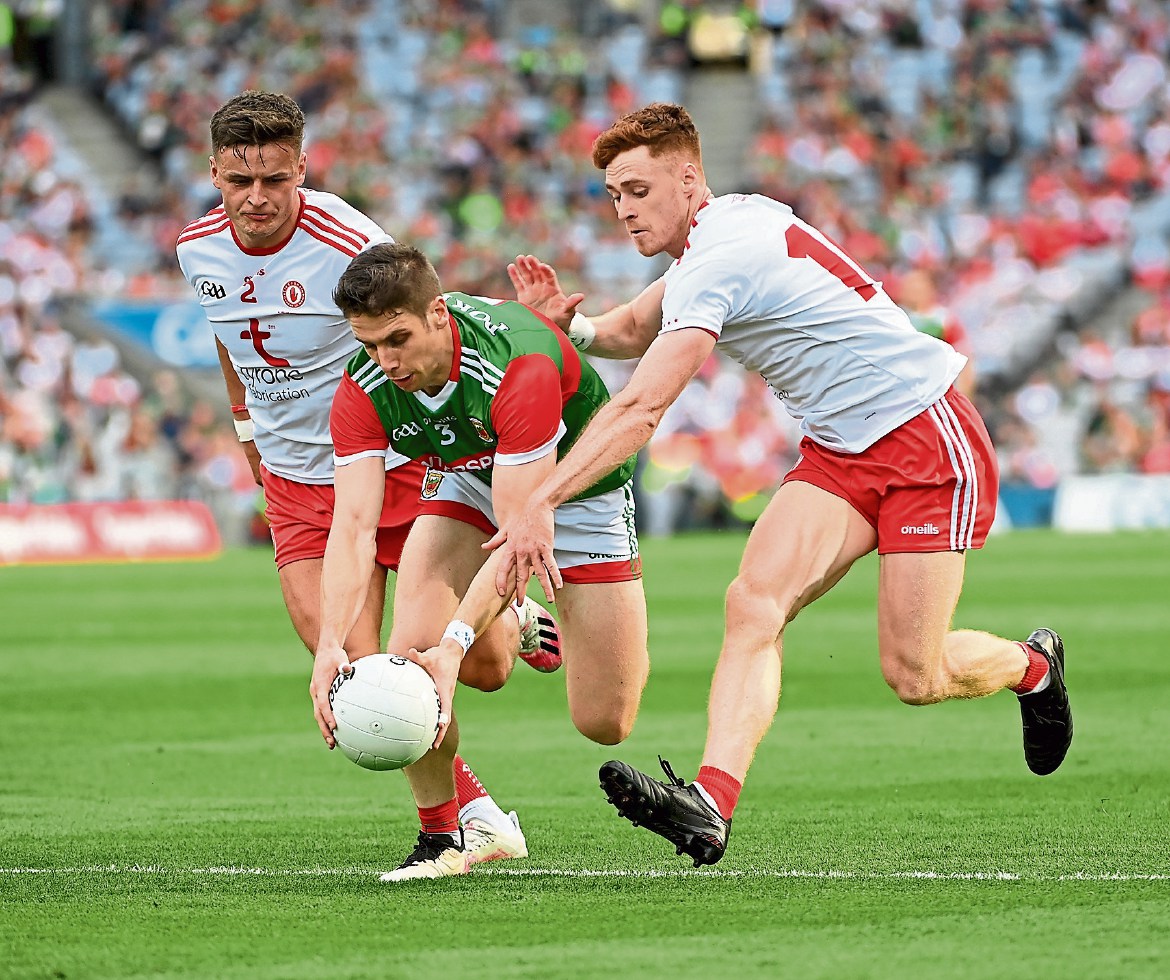IT’S the time of year when most of us are planning to put the feet up and eat all the good Celebrations or Quality Street before anyone else gets to them. Unless of course, you are a GAA manager. No matter the grade, the age, the skill, they’re already planning for next year.
If you’re involved in county you’re already back at work, if you ever stopped at all. It’s also the time of year where I and others involved in sport science get calls or become drafted into teams for the following season.
Sport psychology, in particular, is a minefield for managers. It’s a new discipline to many, and it is entirely unregulated. For my last column of the year, I’ve decided to pen a how-to guide so you don’t end up caught out by someone who isn’t who you thought they were.
1: Know what a sport psychologist is. Very simply, a Masters degree in the subject, while valuable, does not qualify anyone to gift themselves that title. It is the equivalent of me finishing my medical degree in a few months’ time, and calling myself a fully-fledged doctor and treating patients off my own bat without any experience working as a hospital intern doctor. Sport psychologists need an undergraduate degree in psychology and ideally should follow an accreditation pathway with a regulatory body.
Reputable ones in Ireland include the Psychological Society of Ireland (PSI), the British Psychological Society (BPS), the British Association of Sport and Exercise Sciences (BASES) and Sport Ireland Institute Professional Accreditation (SIIPA). For example, the SIPPA accreditation means the practitioner has done at least 200 days of supervised training, after their Masters degree.
If practitioners do not meet these very basic requirements, they are not sport psychologists. As a manager or coach, your main obligation to your players is to ensure the person you are bringing into their circle is qualified to be there. Especially when it comes to the mind. Always ask. People who have done the work will never, ever mind. Sometimes people are still on their pathway.
That’s ok too, so long as you’re fully informed as what they can or can’t do. You wouldn’t (or shouldn’t!) entrust the management of player rehabilitation post-ACL surgery to a masseuse. Instead, the go-to person here is always the chartered physiotherapist. We all know the value of a masseuse in a dressing room, and the great work they do. Clinical pain and post-surgical management isn’t their expertise, but they certainly add to it.
2: Know what a sport psychologist does. Sport psychologists, despite being painted as miracle workers or mind gurus in the media, are as human as the physiotherapist and the S&C coach. They are but one part of a backroom team.
They quietly and confidentially work in the background helping coaches and players deal with performance anxieties, communication issues, team-building and educate on things like focus, attention and emotional control. They are trained to spot someone who might be having difficulties with their mental health and guide them in the right direction.
They aren’t psychiatrists, counsellors or therapists, unless they’ve also done that training. Counsellors and therapists aren’t sport psychologists either, unless they’ve gained the appropriate qualifications. It has happened, and probably still is happening, that people without any of the above skills have been ‘working’ with players dealing with mental illness. I don’t need to explain how at best this is inappropriate and at worst life-threatening.
3: Sport psychology is not a quick fix. I’ve already written about the Hail Mary phone calls from coaches ahead of looming relegation.
You wouldn’t expect your players to be physically fit after one session in the gym, so it is time to stop expecting people to be mentally fit for championship battle after one talk from a sport psychologist.
The mind gym needs consistent attendance as well. I’ll never stop being surprised at seeing so many game post-mortems concluding that the game was lost mentally, yet no steps are ever taken to rectify it. Achieving excellence relies as much on mental factors, as physical strength, skills and tactics.
4: Every single one of us is obliged to learn more about the stigma around mental health in sport.
It’s all well and good telling people it’s ok not to be ok. We need to move it on now and practice what we preach. It will help players put their hand up and ask for help when they need it. But we need to make sure the people giving the help are fit for the job as well.
5: Finally, here’s the answer I give to everyone when I’m told ‘yeah but heshe has x All-Ireland medals, heshe speaks really well about their depression, heshe run a great business, or Y county said heshe was great.’ Those people do have a value.
We learn a lot from the lived experiences of others and they absolutely have an important place in high-performance environments. However, they are not sport psychologists unless they’ve also followed the above pathways. Imagine having heart pain, and instead of attending a cardiologist, you entrusted your ticker in the hands of someone who once had a heart attack and recovered. We wouldn’t do it, and it’s time to stop doing it to the minds of our players.
Tyrone’s Conor Meyler spoke earlier this year to the GAA Social podcast about getting professional help, after spiralling due to what he described as having an overly-intense mindset. Thankfully, he got the right support and advice to flourish. His footballing prowess might be unique, but his struggles aren’t. There are Conor Meylers all over the country, and they deserve their chance to be their best selves as well.
Receive quality journalism wherever you are, on any device. Keep up to date from the comfort of your own home with a digital subscription.
Any time | Any place | Anywhere












